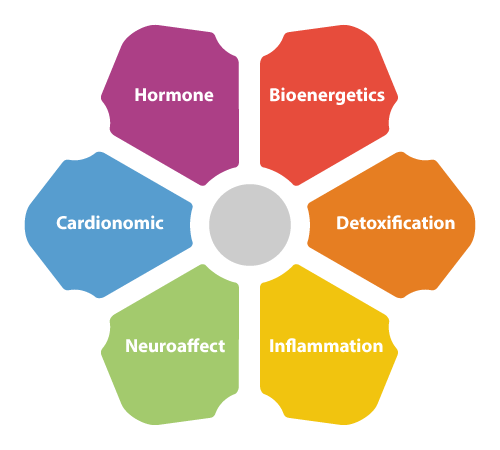If you have a pet, you already intuitively know the value they bring to your life. From companionship to protection, to fun, to caring, your pet gives you so much to appreciate. But if you find yourself in the hospital or confined by a chronic illness or disability, pets could also help you heal. Pet therapy is not only real, it really works too.
 In pet therapy, animals such as dogs, cats, fish, birds, or other animals help those recovering from illnesses, surgeries, and injuries. For example, if you’ve had surgery and are in the hospital, you might get a five-minute visit from a dog that’s part of the therapy program. The dog gives you what dogs are best at - enthusiastic attention, cuddles, and love. You start to feel happier, excited and comforted, and after a while, you notice that your pain is less severe and your anxiety has subsided.
In pet therapy, animals such as dogs, cats, fish, birds, or other animals help those recovering from illnesses, surgeries, and injuries. For example, if you’ve had surgery and are in the hospital, you might get a five-minute visit from a dog that’s part of the therapy program. The dog gives you what dogs are best at - enthusiastic attention, cuddles, and love. You start to feel happier, excited and comforted, and after a while, you notice that your pain is less severe and your anxiety has subsided.
And that’s exactly what pet therapy is for: to help reduce pain, anxiety, loneliness, sadness, and fear. It can help you adjust to your treatments and recovery program more easily and even give you something to look forward to during your rehabilitation process.
Different studies have shown the beneficial effects of introducing animal assistance for patients, and it seems to have an especially positive effect on children and the elderly. Although the studies are small and need to be expanded, they do show an improvement in physiological and psychological wellbeing in different groups of people exposed to assistance animals.
For example, some studies on elderly patients with dementia showed that when they were given their treatments while an animal was present, their behavior improved.
It’s also easy to see how people can benefit from having to take care of their little pets. For example, having to walk a dog once or twice a day can increase the amount of daily physical activity a person gets, and so they may see improvement in their blood pressure levels and cardiovascular health.
Unfortunately, studies on pet therapy have not yet yielded enough data to recommend it for everyone, as many of the improvements are not the easiest to quantify. For example, a lot of the reported benefits are psychological, such as a decrease in the social isolation and sense of loneliness that elderly persons in retirement homes frequently experience. Nonetheless, many people from many different therapy programs have reported such benefits, and so it is definitely something to look into further.
Of course, like many forms of therapy, it does come with precautions. Animals may increase the risk of infections and injuries to a human patient, especially if the patient’s immune system is suppressed or if s/he is in an especially fragile state. But, with enough health and safety measures taken into account, it can be a generally harmless and fun way to help people in recovery.
Understanding how pet therapy can help people recovering from injury, illness, and psychological distress, we can also look at how it may affect those with Adrenal Fatigue Syndrome (AFS) and dysregulation of the NeuroEndoMetabolic (NEM) Stress Response.
 Your NEM stress response is what helps your body cope with stress. It’s made up of six different circuits: the Hormone, the Bioenergetics, the Neuroaffect, the Cardionomic, the Inflammation, and the Detoxification circuits. All of these circuits are composed of organs and systems that work in tandem to fight the negative effects of stress, whether physical or emotional.
Your NEM stress response is what helps your body cope with stress. It’s made up of six different circuits: the Hormone, the Bioenergetics, the Neuroaffect, the Cardionomic, the Inflammation, and the Detoxification circuits. All of these circuits are composed of organs and systems that work in tandem to fight the negative effects of stress, whether physical or emotional.
Recovering from surgery is a form of physical stress, as is having an illness, infection, or injury. Unhealthy lifestyle factors, such as a bad diet or being sedentary, are also considered physical stressors. Emotional stress comes from many different sources, and it can be linked to the physical stress you encounter. Many people with chronic illnesses also begin to suffer psychologically. Spending long stretches of time in a hospital or nursing home can also bring about mental distress. Not being at your baseline mental health and not being able to perform activities that you were able to do before can also bring about mental distress.
Although your body is designed to handle stress, it is not designed to handle chronic stress. When stress is prolonged, your NEM is overworked, starting with your adrenal glands, which are part of the Hormone circuit. As the adrenals work to produce more and more cortisol in order to deal with that ongoing stress, they begin to get tired, and you develop AFS.
Symptoms of AFS include fatigue, easily gaining weight and difficulty losing it, difficulty falling asleep or staying asleep, waking up in the middle of the night, having a hard time getting out of bed in the morning, hair loss, loss of libido, PMS, infertility, food and drug sensitivities, frequent colds and flus, salt and sugar cravings, anxiety, depression, and hypoglycemia.
The more the condition progresses, the more severe the symptoms become, until your health is so debilitated that you become bedridden. And as your adrenals get exhausted, the rest of the NEM dysregulates as well, bringing on even more symptoms and weakness.
Of course, for such conditions, recovery will entail major lifestyle changes. These include eating differently, such as switching to the adrenal fatigue diet, which helps replenish your energy and nutrient stores and is easy on your digestive tract. Doing mild forms of exercise, such as adrenal breathing exercises or adrenal yoga, can help. Getting enough rest and sleep is important. And, of course, it’s vital to manage or reduce stress.
Pet therapy can come in handy in a couple of different ways when recovering from AFS. First of all, it can help with the anxiety and depression that comes with AFS, and it can help soothe you and reduce your stress levels. Getting up to feed, groom or walk your pet can give you the mild forms of exercise that help in early recovery. Those who are housebound will find pet therapy most welcoming if they are able to take care of the pet.
But if you’re in a very weak state, you may not be able to handle any kind of pet. In fact, you may become sensitive to their fur and susceptible to infections due to your lowered immunity. In such cases, pet therapy should only be done under supervision with experienced professionals to reduce such risks. It is important to speak with an adrenal fatigue specialist before starting pet therapy as it can be more harmful than beneficial depending on where you are in your AFS recovery.
 As you can see, pet therapy can vary widely, and it can range from helping bring joy and comfort to those in physical or mental distress, to helping those with medical or mental health conditions adapt and live more autonomously. For professionally-trained assistance animals, the costs can be quite high and the waiting period quite long. But those who have assistance animals swear by their value, both for the service they provide and for the companionship.
As you can see, pet therapy can vary widely, and it can range from helping bring joy and comfort to those in physical or mental distress, to helping those with medical or mental health conditions adapt and live more autonomously. For professionally-trained assistance animals, the costs can be quite high and the waiting period quite long. But those who have assistance animals swear by their value, both for the service they provide and for the companionship.
If you want to get some of the benefits of pet therapy but are not sure of how you will take to it, you can start by seeing how you feel around a friend’s pet or ask about pet therapy programs at your local hospital or health center. That way you can try it and see first.
© Copyright 2020 Michael Lam, M.D. All Rights Reserved.
Pets can give you company and comfort when you are unwell, but the amazing thing is that studies are showing that they can also help reduce your pain levels, anxiety, and even improve how you handle your other treatments. But there are risks.
